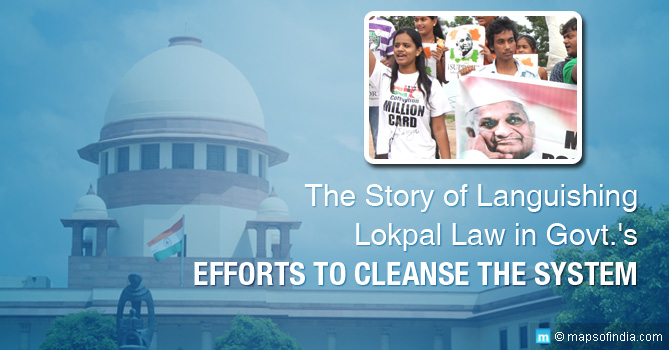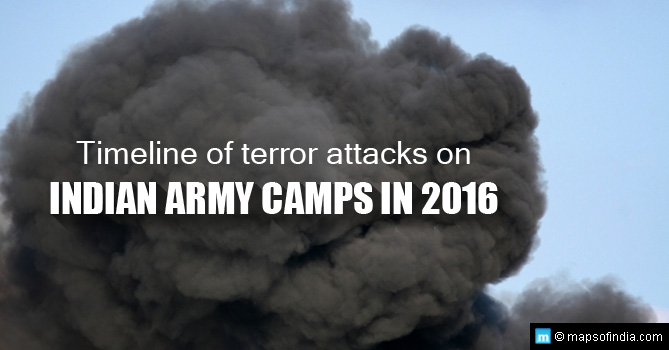In a major embarrassment to the Narendra Modi government, the Supreme Court on Wednesday (November 24) questioned its political will and slammed it for procrastinating on the appointment of Lokpal, the anti-corruption ombudsman, which has been pending since it was made into law in 2013.
Chief Justice TS Thakur did not mince words when questioning the government’s lackadaisical attitude towards the appointment of the ombudsman until now, especially since the Prime Minister himself was so public about his commitment of cleansing the system. The Chief Justice further added whether or not the government would allow the law to become redundant, in wake of country’s corruption crisis.
Defending the government’s position, Attorney General Mukul Rohatgi emphasised the government’s commitment to cleaning up the system and stated that the action on demonetization was a step in that direction.
He also added that the amendments to the Bill were pending in Parliament. One of the amendments was that the Leader of the single largest Opposition party in Lok Sabha was to be a part of the search panel to identify a suitable candidate, in case of absence of a Leader of Opposition (LoP) in Lok Sabha. This situation had arisen as there was no LoP in Lok Sabha post 2014 General elections.
To this, the Chief Justice retorted that the nation cannot wait for another two and a half years and if the government failed to urgently move on this, including exploring the Ordinance route, the apex court would step in and appoint the Lokpal.
The Attorney General took exception to this, saying that the apex court could not step over the legislature on the appointment. The Supreme Court has announced December 7 as the date for next hearing on the matter.
So, is Lokpal a Missed Opportunity?
Prime Minister Modi has been very vocal about his commitment to ushering in clean and corrupt-free governance and has even staked his personal reputation on the line. He now has no choice but to deliver on the same on all fronts.
If he succeeds, he has the opportunity to emerge as the greatest political leader India has produced in the post-independence era, surpassing Jawaharlal Nehru and Indira Gandhi. The latter left her mark not with nationalisation of private banks but with her decisive action that led to the creation of Bangladesh.
With demonetization being the most impactful economic decision in India in the last several decades, PM Modi has a real chance to emerge as a leader with a stature greater than either Jawaharlal Nehru or Indira Gandhi. Half measures, however, will not suffice and he will have to go the distance and decisively so.
Post 2014 elections, he had the advantage of the nation fanatically supporting him as the much-awaited leader who could reform India and unleash its true economic and social potential. However, his subsequent procrastination on several issues and prolonged silence at crucial times and on pertinent affairs, has resulted in the erosion of that initial support, with many now questioning his political will to go the distance on much-needed reforms.
There is no question that demonetization has been a positive move, but the introduction of Rs 2000 note runs contrary to the stated intention to move the economy towards a digital one, and to root out black money, fake currency and fight corruption.
Many have questioned this move, and along with poor execution, a lot of goodwill from the masses that he received in the immediate aftermath of his announcement on November 8, is now being eroded, if not entirely lost.
Appointing the Lokpal can be yet another opportunity for the PM Modi to reclaim the moral high ground as a true crusader against corruption. He must move decisively towards appointing the Lokpal through Parliament with the same zeal that his government showed when making its case on GST.
The Long and Controversial Journey of the Lokpal
The debate for creating the post of Lokpal has been debated intensely for over 50 years with no real consensus among various political parties. After much debate and deliberation in both houses of Parliament, there was finally a consensus and in December 2013, The Lokpal and Lokayuktas Act was enacted and came into force in January 2014.
The search panel that was set up to identify a suitable candidate for the post of Lokpal ran into controversy with leading jurist Fali Nariman resigning from the panel. Ever since, the appointment has been delayed on one pretext or another with amendments pending in the Parliament.
The fact is that the latest amendment to the Lokpal and Lokayuktas Act 2016 was cleared by the President, who gave his assent on July 29, 2016. The appointment process should have commenced by now; but it seems to have slipped on the government’s list of priorities. This is what the Supreme Court highlighted.
This is the Final Countdown
With 2019 General elections just two and a half years away, PM Modi is fast running out of time. Whatever major policy action taken now will take at least one entire fiscal to show its effect. Therefore, moves like GST and demonetization have come at the right time. However, if the PM really wants to leave his mark, then he will have to soon catch the corruption bull by the horns, quite literally.
Lokpal will be an important step in that direction as people are increasingly demanding probity in public life, but they also want to see the PM take action in areas where corruption is most deep-rooted — politics and bureaucracy. The PM has placed himself in the international spotlight of expectation and now he must walk the distance.
Read More…
What is stopping the Jan Lokpal Bill?
How is Lokpal Bill better than the current system?
Lokpal Bill vs Jan Lokpal Bill
Lokpal Bill – how did it begin?
Facts about Jan Lokpal Bill
The Jan Lokpal Bill And The Hunger Strike Of Anna Hazare





